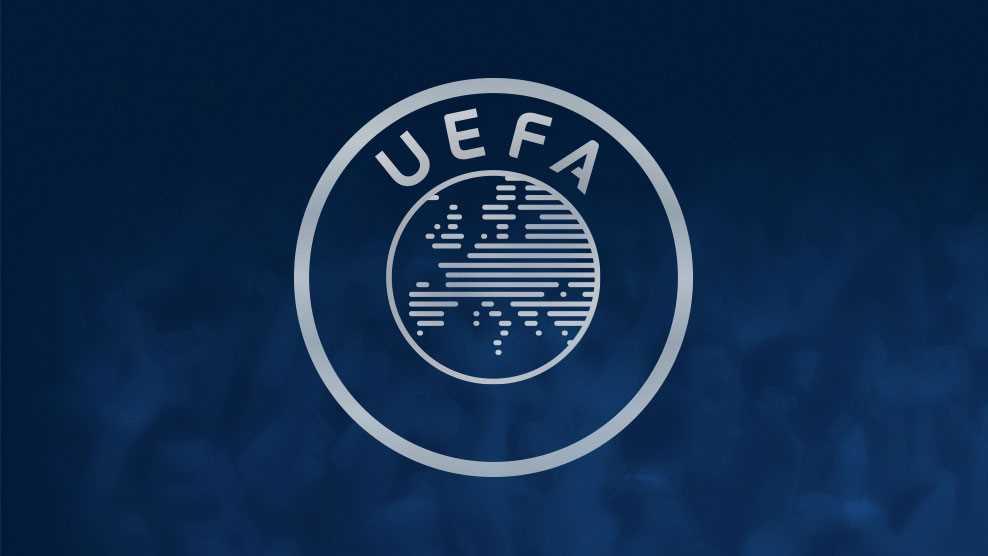Introduction:
As Europe grapples with a myriad of challenges— from economic instability to political tensions— the world of football finds itself at a crucial juncture. in this landscape of uncertainty, UEFA (the Union of European Football Associations) has emerged as a pivotal force, leveraging its influence to not only uphold the spirit of the game but also to address broader societal issues. With a commitment to promoting solidarity and resilience through football, UEFA has initiated various programs aimed at fostering unity, especially in times of crisis. This article delves into UEFA’s strategic responses, exploring how the organization is not just a governing body for football but also a beacon of hope and cohesion in a tumultuous era for the continent.
Table of Contents
- UEFAs Response to Financial Instability in European Football
- Fostering solidarity: UEFAs Initiatives for Clubs Facing Crisis
- Enhancing Fan Engagement through Community-Oriented Programs
- Implementing Sustainable Practices to Secure Footballs Future in Europe
- Key Takeaways
UEFAs Response to Financial Instability in European Football
In an era marked by significant financial challenges within European football, UEFA has taken proactive steps to stabilize the landscape of the sport. Central to this effort is the reinforcement of financial fair play regulations, aimed at ensuring clubs operate sustainably. By imposing stricter financial controls and implementing a revised licensing system, UEFA seeks to curb excessive spending that places teams’ futures in jeopardy. This initiative not only protects clubs from financial ruin but also fosters a more level playing field, enhancing competition across leagues.
Additionally, UEFA has introduced a series of financial support measures for clubs facing acute financial distress. These measures encompass grants and loans, designed to aid teams in immediate need of liquidity. By delivering timely assistance, UEFA demonstrates its commitment to preserving the integrity of the sport, while promoting social responsibility through community engagement programs. Such initiatives are essential to rebuilding trust among fans and stakeholders, as they signal UEFA’s dedication to the long-term health of european football.
| Financial Measures | Description | Goals |
|---|---|---|
| Financial Fair Play | regulations to ensure clubs maintain sustainable budgets. | Prevent financial crises and promote competition. |
| Grants & loans | Immediate financial aid for struggling clubs. | Support liquidity and operational stability. |
| Community Engagement | Programs to connect clubs with local communities. | Rebuild trust and enhance club image. |
Fostering Solidarity: UEFAs Initiatives for Clubs Facing Crisis
In recent times, football clubs across Europe have faced unprecedented challenges ranging from financial instability to the aftermath of global crises.UEFA has stepped in as a pivotal force in addressing these issues, implementing a series of initiatives designed to bolster clubs in distress. among these are tailored financial grants, which provide essential liquidity for clubs struggling to meet operational costs. moreover,UEFA has rolled out advisory programs that connect clubs with financial experts,ensuring they receive the necessary guidance to navigate turbulent waters. This support is not merely reactive; it underscores UEFA’s commitment to promoting financial stability across the league system.
Another integral part of UEFA’s strategy is the solidarity payments mechanism, which redistributes funds generated from UEFA competitions like the Champions League and Europa League.This model ensures that smaller clubs and those in distress receive vital funding to maintain their viability. Clubs facing difficulties can also benefit from UEFA’s social responsibility programs,which promote community engagement and build stronger ties with local fans,contributing to a more vibrant football culture. Through these extensive initiatives, UEFA is not only preserving the integrity of the sport but also fostering a spirit of collaboration and resilience among clubs in Europe.
Enhancing Fan Engagement Through Community-Oriented Programs
In today’s rapidly changing landscape, community-oriented programs play a crucial role in bridging the gap between football clubs and their supporters. UEFA, recognizing this imperative, has initiated a series of programs designed to enhance fan engagement by fostering local connections and inclusivity. These initiatives aim to create vibrant fan communities through various methods, including:
- Grassroots Outreach: Collaborating with schools and youth organizations to promote football at a young age.
- Community Events: Organizing tournaments and workshops that encourage local participation and skill development.
- Supporter Workshops: Creating platforms for fans to voice their opinions and actively participate in club-related decisions.
Furthermore, UEFA has rolled out a framework that enables clubs to develop tailored programs reflecting their communities’ unique identities. By investing in initiatives that resonate with local populations, clubs can cultivate a strong sense of belonging among fans. This approach not only supports the growth of the sport but also ensures a sustainable football culture amid challenging times. A recent initiative included a community-focused festival that showcased local talent,which resulted in considerable local attendance,emphasizing the value of fostering relationships between clubs and their supporters. The impact of such programs can be quantified in various ways, including:
| Metric | Before Initiative | After Initiative |
|---|---|---|
| community Event Attendance | 500 | 1,200 |
| Youth Participation in programs | 150 | 350 |
| Club Membership Growth | 2,000 | 3,500 |
Implementing Sustainable practices to Secure Footballs Future in Europe
As the landscape of football continues to evolve under pressures from climate change and economic uncertainties, the need for sustainable practices is increasingly vital. UEFA, as the governing body of european football, has taken significant steps to integrate these practices into the fabric of the sport. Initiatives such as reducing carbon emissions across venues, promoting recycling programs during major tournaments, and encouraging clubs to adopt greener training facilities are just a few examples of how UEFA is leading the charge. By fostering collaboration among member associations, UEFA is creating a robust framework that supports sustainability while enhancing the integrity and appeal of the game.
Moreover, grassroots engagement and education play a crucial role in this transformative journey. UEFA has launched several programs aimed at raising awareness around sustainability among youths and local communities. These efforts include:
- Workshops and seminars focused on sustainable sports management.
- Incentives for local clubs that implement eco-friendly operations.
- Collaborative projects with educational institutions to develop sustainability curricula linked to football.
In reshaping its approach, UEFA is not only safeguarding the future of football in Europe but also setting an example for the global community, demonstrating that the beautiful game can harmonize with the planet’s needs.
Key Takeaways
As we reflect on UEFA’s pivotal role in navigating the turbulent waters of European football, it is evident that the organization’s efforts to uphold the integrity and spirit of the sport extend far beyond the pitch. From implementing strategic financial regulations to addressing social issues such as racism and inclusivity, UEFA has demonstrated a commitment to fostering a resilient football community.
In an era marked by unprecedented challenges—from the economic fallout of the COVID-19 pandemic to the geopolitical tensions affecting some of its member associations—UEFA’s proactive measures have provided a vital framework for recovery and growth. By promoting solidarity among clubs and associations and investing in grassroots initiatives, UEFA aims to secure the future of football as a unifying force across the continent.
As we move forward, the ongoing challenges will undoubtedly test the resolve and adaptability of UEFA and its stakeholders. However, the organization’s sustained efforts to innovate and inspire signal a hopeful future for football in Europe. For fans, players, and clubs alike, the promise of a stronger, more cohesive footballing landscape remains a rallying point as we embrace the next chapter in this storied game.





